Posts Tagged ‘job’

As a Junior at SUNY Cortland, I juggle a full course load in biochemistry, part-time work, and extracurricular activities. I am enrolled in the Work-Study program on-campus and I am a Green Representative. Sponsored by Residence Life and Housing and Physical Plant, the Green Rep program inspires sustainable lifestyles through peer to peer environmental education programs. I also find time to be a Supplemental Instruction (SI) tutor. I’m concerned about be able to fully pay back my student loans. If I don’t get a job, then I’m going to be in debt for my whole life, it seems.


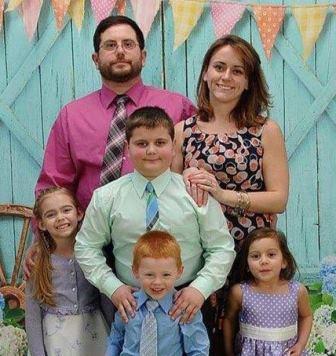
I am a married father with two biological and two foster children. I went to school later in life out of economic necessity. Higher education affordability is very important to me. In 2012 I was denied a much-needed promotion. Simultaneously, my wife became pregnant with our daughter. The reality of the world hit us. My family couldn’t afford to live on my salary any longer, so I decided to leave the workforce to pursue a bachelor’s degree.
After excelling at Onondaga Community College, I transferred to SUNY Cortland where a large portion of my educational expenses were covered by aid. However, despite working upwards of 25 hours a week, I still had to take out loans to cover additional costs associated with getting a degree like transportation, rent, and textbooks. I could not afford to satisfy these costs juggling a full-course load and part-time work.
I will be graduating in May and will be pursuing a doctorate of physical therapy coupled with a master of public health from Adelphi University. My hope is that I can progress into the world of rehabilitation in the hospital setting, working with spinal cord injury patients.



I am a senior in the criminology program and an aspiring law school candidate. My education would not have been possible without taking on a substantial amount of student loan debt. I am frightened when it comes to paying back my loans.
My loans cover tuition costs, and that’s it. I have to pay for cost-of-living expense such as rent, food, and transportation out of pocket. I participate in the work-study program and am enrolled in the Equal Opportunity Program (EOP). Investing in higher education will allow students like me the opportunity to grow as individuals, and ultimately positively affect the great state of New York.


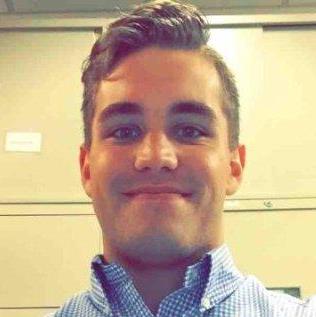
I am a senior economics major heading towards graduation, and am pleased with the opportunities and experiences I’ve had during my four years at SUNY Cortland. I’ve made friends for the rest of my life. While I have had this positive experience, I also took on on multiple student loans. My family felt the financial burden of increased tuition and related expenses as they put both my sister and myself through college.
The value of a higher education is important to me and my family, so I resorted to a handful of student loans to cover a portion of my tuition and textbooks. Aside the student loan debt that I’ve taken on, I also work part-time during the semesters to cover living expenses and the rest of my tuition. On top of working, I have a maxed-out course load, I participate in intramural sports, and have an internship on-campus. My schedule is busy, and worrying about how to afford the rising costs of SUNY Cortland’s tuition and costs has no place in it.


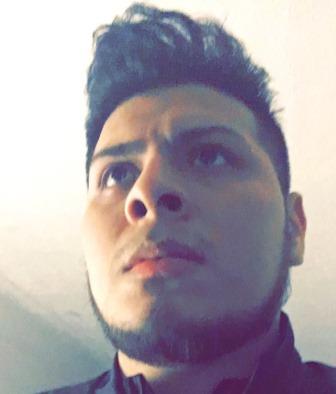
I have received help through the Tuition Assistance Program (TAP) and the Pell Grant. This federal and state assistance has helped me go to school and not have to worrying about paying for it. After taking a long break and working many jobs, I decided to go back to school. I realize that Pell and TAP don’t last forever. This semester (Spring 2017) has been a struggle because I didn’t receive full financial aid. I was able to save money and got loads of help from my parents. Because of this, I was able to meet the payments needed to pay half my tuition, books, Metrocard, and food.
I do appreciate the people that have to work full time and go to school because I know it is not easy. Paying for school made me realize how important programs are for many students such as SEEK, ASAP, and EOP because they help you get to where you need to go. If it wasn’t for half the help from Pell, TAP and my parents, I wouldn’t be able to complete this semester. I do wish free tuition in NY State had more support for part-time and undocumented students. Being a full time student and working full time is really stressful and leaves little to no time to actually study for the classes you are taking.



I am majoring in political science and theater, and aim to be a senator or mayor. I believe tuition and other costs to attend CUNY and SUNY schools should be state funded. I started college right after getting my GED. When I started to look into schools, I was worried I couldn’t afford it. A huge obstacle was figuring out where my 2 year old son would go while I was in school. My mother was too old and sick to take care of him and I didn’t have any other family members around me so I felt stuck. My only option was to look for daycare but the prices were way too expensive. I felt like I would be drowning in debt and costs of tuition and childcare. I enrolled at BMCC since it had a childcare center. I decided to do 5 courses in order to qualify for full financial aid.
Luckily, because of the Tuition Assistance Program (TAP), the Pell Grant, and the publicly funded childcare center at BMCC, I was able to afford to attend college. Textbooks and my monthly metrocard were a huge burden for me this year, though. Luckily I’ve enrolled in Accelerated Study in Associate Programs (ASAP) for next year so those costs will be covered. I have a part time job that covers these costs currently, but between textbooks, metrocards, and paying for diapers and food for my son, I often can’t afford to buy food for myself. I’m determined to get an education, failure is not an option but it’s come at a cost to my health.


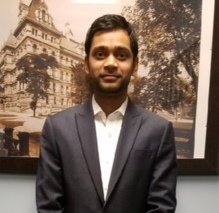
Throughout my college career, I have received financial assistance through the Pell grant and the Tuition Assistance Program (TAP). The assistance was a huge help for me because without it, I would not have been able to go to college. My father is the only person who works full time in my family. He barely makes enough money to pay for all the expenses of providing for a five-member family. I attended college full time while working part time to help take some of the burden off his shoulder, and at the same time pay for my own expenses such as books, metrocards, and food. However, work would sometimes get in the way of my studies. There were many times when I had to choose between studying for an important exam and going to work because I needed the money. While the assistance of Pell grant and TAP has been extremely helpful, I still struggle financially.
I realized, although too late, that there were other programs offered in college to help students with their everyday expenses; programs like ASAP and SEEK. I wasn’t informed about these programs in high school or in my first semester of college. When I learned about them and went to the financial aid office in my second semester of college, I was told it was too late for me to be eligible for the programs. If I had the assistance that educational opportunity programs provide, I could focus more on my studies and less on working to pay for expenses. This would have made a huge difference in my academic life.


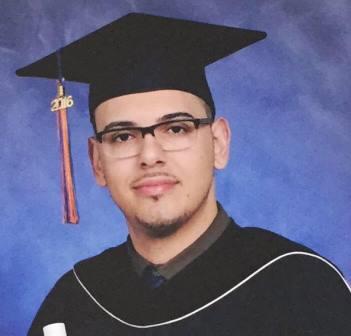
I am a first generation college student who started my academic journey at Hostos Community College. I am a bit older and have established a fairly decent job to pay my current bills, but not enough to pay for school. I filled out my FAFSA and sent it in but New York State did not offer me a Tuition Assistance Program (TAP) award, because of my current pay so I have to take out federal loans. I found this to be extremely challenging considering I was struggling to make ends meet with my current expenses. I currently have my associates, which I am very proud of, but continuing my journey to achieve my bachelors has been a struggle. My current student loans exceed the 20 thousand dollar range. I would have loved for tuition cost to be much less or if New York State offered grants to help pay for even just textbooks.
Taking a full load of 15 credits or about 5 classes can be extremely difficult with a full time work schedule. My biggest fear is when I finally get my degree and enter loan repayment, my salary will not match what is needed to pay back the loans. Being a part time student during some semesters means taking much longer to graduate, but the financial burden increases since it is the same cost of a full time student taking 12 credits to 18 credits.


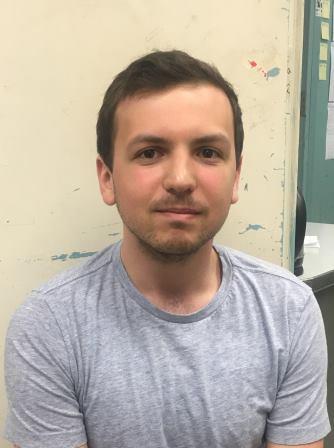
I pay for the majority of my tuition through the Tuition Assistance Program (TAP), and I have to pay out of pocket for the rest of my tuition and other costs which these programs don’t cover. In addition, since TAP takes an excessively long time to process for me, I sometimes have to pay, on average, about $1,500, up front. This is to ensure that my classes do not get dropped in the beginning of the semester. Some semesters my classes do get dropped, without my knowledge, or any warning that there was a standing balance. This is a huge problem, because due to limited class availability, seats fill up in classes very quickly.
I always expect TAP to not process properly for me, so I work during the summer to try to avoid this. Because I have to work long hours to make money in the summer, I lose the opportunity to pursue internships related to my career goals. My only challenge should be learning new material, not dealing with all the hassles of getting into classes. Not to mention, high tuition is not the only challenging cost that I am faced with. Books, transportation, and food are also costly and finding money for these expenses is equally difficult. This strain is not only taking a toll on my finances, but also on my health. The panic of finding out that my classes are dropped, that it might be too late to re-register, being forced to take a semester off, and struggling to afford all of these costs, has taken a toll on my mind and body.


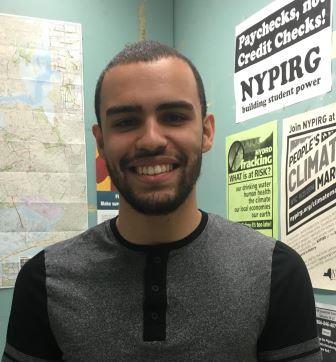
The recent divestment in CUNY and SUNY funding has affected me in many different ways. I work in order to pay for the entire tuition out of my own pocket. The job I work provides me with just enough to pay my tuition fees while leaving me with less to save for the future. I sometimes completely opt out of buying the textbook of a class in order to save the hundreds of dollars they can cost. I instead have to spend time in the library waiting for the textbook to be available and then rent it out to do my studying and homework.
This, along with working the same days I have class, is very exhausting and negatively affects my state of mind and how much I get out of my classes. The job I have has nothing to do with what I want my future career to be. I would love to be in a position where I can become an intern and gain valuable work experience in the field of my major. I hope that one day everyone can have the ability to become an intern in a field of their choosing.










